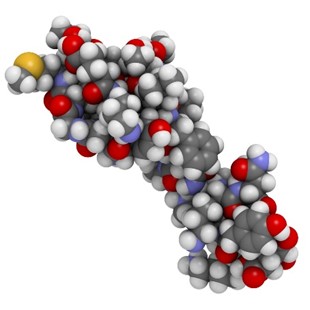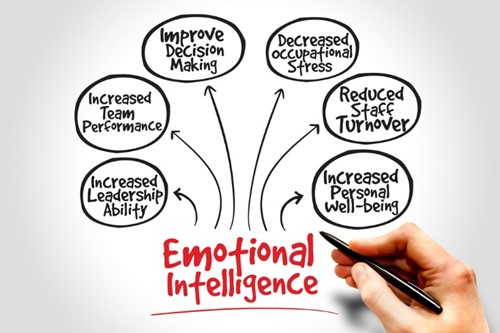Handling emotional stress, the right way

John grew up hating his father. He struggled through his studies and eventually qualified as an accountant. His colleagues noticed he had very low self-esteem as he often compared himself to his peers and felt they were happier and more successful than him.
Things came to a head when John missed a promotion. “These people look down on me. I will never get promoted in this company,” John told himself. His wife noticed that John was depressed and could not sleep well. After quarrelling with his wife, John became bitter. “Nobody understands me; they make my life miserable,” he cried to himself.
Cognitive distortion
You may know someone like John. So, what was going on in his mind? John was suffering from a common problem called cognitive distortion. His inner dialogue
The future is unpredictable, yet John spoke like as if he knew what would happen, “Fortune-telling” is a type of cognitive distortion. Although cognitive distortions occur primarily in our minds, they can have serious consequences on our body and spiritual heart when the distortions cause us to go into self-centeredness and self-pity.
A spiritual heart that is unwell can lead to excessive focus on oneself, or self-centeredness. It begins with feelings of self-pity. The symptoms of self-pity include regret, disappointment, envy, jealousy and greediness. Self-pity can spiral precipitously downwards into severe depression and even suicidal tendencies.
The importance of feel-good hormones – endorphins
Our bodies produce a hormone called endorphin that makes us feel good. Endorphin is an abbreviation of “endogenous morphine” or natural morphine.
The artificial chemical morphine which is manufactured from poppy flower is used medicinally to relieve pain, but it also alters perception by producing euphoria and dispelling fear and anxiety.
The natural endorphins produced from our brain can do the same thing. The only difference is that they are natural and therefore safe (while morphine is
Endorphins are beneficial because:
- They give us a sense of security and significance;
- They build up our immune system;
- They can help relieve aches and pain; and
- They improve the accuracy of our perception, hence helping us in problem-solving.
If endorphins are so good for us, how can we “get” them? Endorphins are released during physical exercise. However, they don’t last long because the body produces an enzyme called endorphinase that consumes them.
What then can we do to increase levels of endorphins?
According to scientific research, thinking positively will aid the release of endorphins, and vice-versa. One way to understand why an unhappy person would have low levels of endorphins is to look at the fourth property: that endorphins help improve the accuracy and positivity of our perception.
If a person considers half a glass of water as half-empty, then he is not interested in problem-solving. His endorphin level will drop as the mind “informs” the body that he does not need fresh release of endorphins.

In real life, a half-empty mindset would be to regret a bad experience from the past and constantly replay that episode in our mind. Self-pity will do that to the individual.
Accepting the past and moving on with renewed hope will strengthen the individual to face tomorrow. Emotionally-excellent individuals do precisely that. They manage their emotional stress by constantly practicing thankfulness in their spiritual heart. I have designed a special technique which will help release endorphins in our bodies. It is called the TENT therapy.
In the GLOMACS course entitled “Leading with Emotional Intelligence: Psychology of Leadership” Professor Yong will teach the TENT therapy to help delegates manage your emotional stress by practicing thankfulness in your life.
This is an article written by a GLOMACS Senior Consultant who is an inventor and author and has who has worked in many countries internationally. He is also an Educational Psychologist. This Senior Consultant was a Professor at Universiti Malaya’s Dept of Educational Psychology and Counseling. He has consulted, researched and taught for more than 20 years in Universiti Malaya, the top ranked university in Malaysia. He was also the pioneering Director of Universiti Malaya Centre for Continuing Education.
This GLOMACS Senior Consultant has received international global recognition for his research and consultancy work on creativity & emotional intelligence. Based on his pioneering work on the LEONARD Personality Inventory (LPI) & the LPI Software, and its use in helping individuals to develop their Emotional Intelligence (EQ) & creativity, he has consulted and conducted numerous training workshops on EQ and Creative Thinking for leaders from many organizations.
His books include The LEONARD Personality Inventory, The Joy of Creativity -Creative Responses from Americans, Japanese and Malaysians and Creativity: A Study of Malaysian Students. His articles have appeared in journals such as Perceptual & Motor Skills, The Journal of Creative Behavior and Education Quarterly. He is a member of the American Psychological Association, American Psychotherapy Association, American Counseling Association, and the Malaysian psychotherapy Association.

